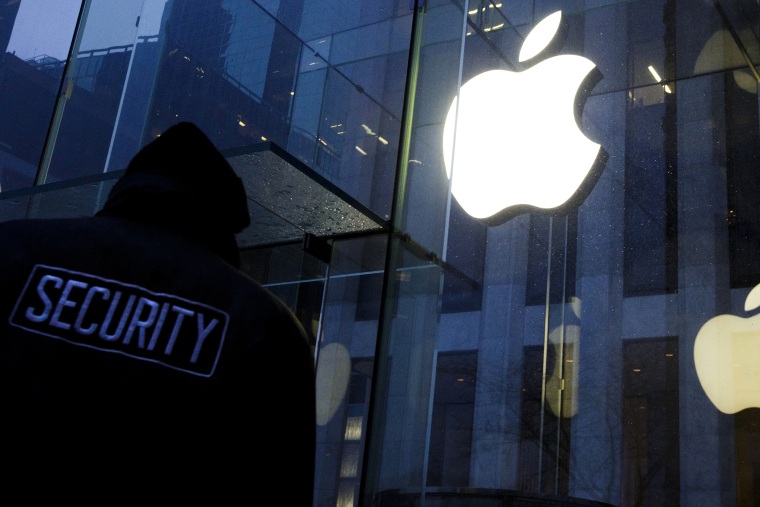Donald Trump hosted a relatively uneventful White House meeting last week of his American Workforce Policy Advisory Board, which includes a variety of prominent private-sector leaders. In fact, the president sat next to the CEO one of the world's largest companies: Apple's Tim Cook.
Turning to Cook, Trump said, "I mean, you've really put a big investment in our country. We appreciate it very much, Tim Apple."
As verbal slip-ups go, this seemed unimportant. The president obviously meant Tim Cook, not Tim Apple. The Apple CEO had a little fun with the error -- he changed his last name on Twitter to his company's iconic logo -- but it wasn't long before everyone moved on and forgot about it.
Well, perhaps not everyone.
Republican donors in attendance called it one of Trump's weirdest lies ever. On Friday night, under a tent erected over the pool at his Mar-a-Lago club in Florida, President Trump claimed the media were spreading "fake news" when they said he called the CEO of Apple "Tim Apple."Trump told the donors that he actually said "Tim Cook Apple" really fast, and the "Cook" part of the sentence was soft. But all you heard from the "fake news," he said, was "Tim Apple."Two donors who were there told me they couldn't understand why the president would make such a claim given the whole thing is captured on video.
One of Axios' sources responded, "I just thought, why would you lie about that. It doesn't even matter!"
That's entirely right. Last week's minor error -- he very clearly said "Tim Apple" -- was unimportant, but Trump apparently didn't appreciate being the target of harmless jokes, even for a day. And so he lied, again, even when the truth would've been easier.
Many of the president's lies at least make sense from a strategic or tactical perspective. I know why he lied about his role in the hush-money scandal and about the communications between his campaign operation and Russia before the election: the truth would intensify the scandal. Similarly, I know why he continues to lie about border-wall construction and the health of the economy: the truth would likely make it tougher for him to win re-election.
But the Axios report, if accurate, is emblematic of a more unsettling dynamic: Trump sometimes lies when he doesn't have to.
Postscript: The official White House transcript, apparently eager to make the president feel better, used some creative punctuation. In reality, Trump said, "We appreciate it very much, Tim Apple." The official transcript, however, reports that the president said, "We appreciate it very much, Tim -- Apple."
As a grammatical matter, I'm not sure how that would make sense, and it's not the first time the White House has edited one of its transcripts in a way it probably shouldn't have.
Update: At the exact minute I published this post, Trump tweeted, At a recent round table meeting of business executives, & long after formally introducing Tim Cook of Apple, I quickly referred to Tim + Apple as Tim/Apple as an easy way to save time & words. The Fake News was disparagingly all over this, & it became yet another bad Trump story!"
First, why the president wants to focus attention on this is a mystery. Second, does Trump really expect anyone to believe saying "Tim Apple" instead of "Tim Cook" saved time?
Trump didn't need to talk about this at all. It was a meaningless sip of the tongue, which was quickly forgotten. But he just can't seem to help himself.
